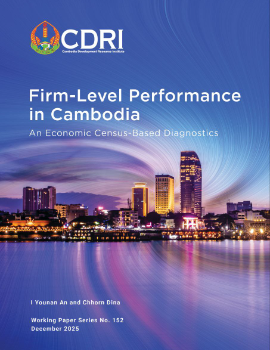
Firm-Level Performance in Cambodia: An Economic Census-Based Diagnostics
Cambodia’s enterprise landscape remains structurally dualistic, characterised by an extensive base of micro and informal firms coexisting with a narrow segment of large, often foreign-owned enterprises. Using the Economic Census of Cambodia 2022, this study examines the determinants of firm performance and the structural conditions shaping business...
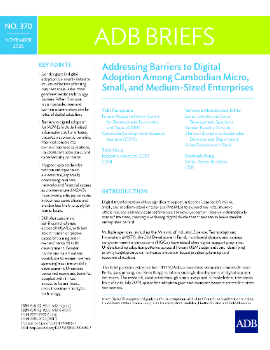
Addressing Barriers to Digital Adoption Among Cambodian Micro, Small, and Medium-Sized Enterprises
Gender gaps in digital adoption are mainly linked to structural factors affecting business scale rather than gender-specific technology barriers. When firm size is comparable, men and women owners show similar rates of digital adoption.Barriers to digital adoption for MSMEs include limited information, skill shortages, uncertain economic benefits,...
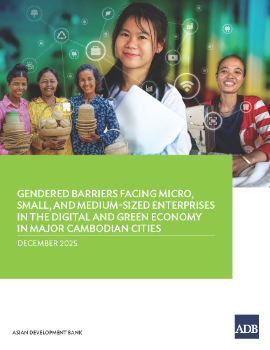
Gendered Barriers Facing Micro, Small, and Medium-Sized Enterprises in the Digital and Green Economy in Major Cambodian Cities
Drawing on extensive data and stakeholder insights, it reveals how unequal access to knowledge, finance, and networks can hold back enterprises owned by women. The report sets out targeted policy recommendations for inclusive economic development where women entrepreneurs are empowered to lead in the digital and green economy.For the full report, p...
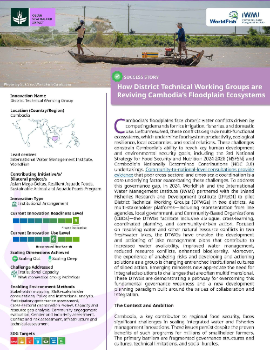
How District Technical Working Groups are Reviving Cambodia’s Floodplain Ecosystems
Cambodia’s floodplains face chronic water conflicts driven by competing demands for rice irrigation, fisheries, and domestic use. Left unresolved, these conflicts degrade multi-functional ecosystems, which undermine food system productivity, ecological resilience, local economies, and social relations. These challenges constrain Cambodia’s ability...
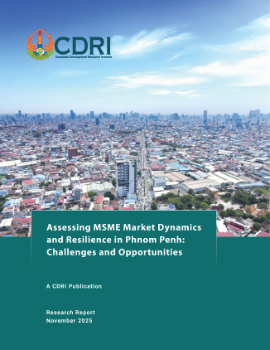
Assessing MSME Market Dynamics and Resilience in Phnom Penh: Challenges and Opportunities
This report examines the market dynamics and resilience of micro, small, and medium enterprises (MSMEs) in Khan Meanchey, Phnom Penh, based on data from 14,820 establishments. MSMEs are deeply embedded in the urban economy, with nearly every household engaged in business activity. Despite a strong post-pandemic recovery in 2023, early signs of...
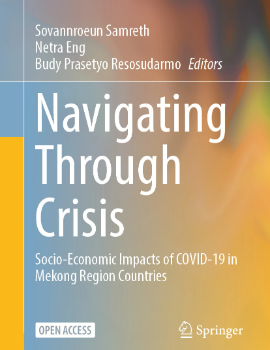
COVID-19 and Countries in the Mekong Region
This chapter provides an overview of the COVID-19 pandemic, its socio-economic impacts, and policy responses in Cambodia, Lao PDR, Myanmar, and Vietnam (collectively referred to as CLMV). It presents how the pandemic affected key sectors and heightened existing vulnerabilities, particularly among women, migrant workers, and those in the informal se...
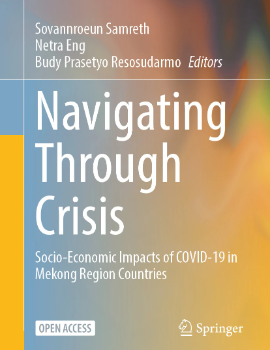
Assessing the Impact of COVID-19 on Cambodia’s Trade, Global Value Chain, and Export Competitiveness
The COVID-19 pandemic has severely disrupted global economic activity, impacting Cambodia’s trade dynamics, weakening its integration into global value chains, and undermining export competitiveness. This chapter assesses the pandemic’s effect on Cambodia’s trade landscape, focusing on shifts in export structure, supply chain disruptions, and chang...
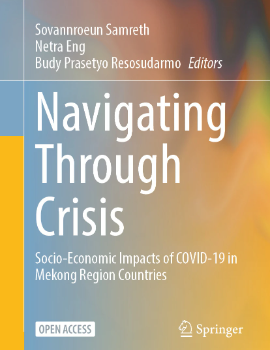
Cambodian Cassava and COVID-19: An Analysis of Production, Productivity, and Gender Impacts
Although the agriculture sector in Cambodia was initially considered less vulnerable to the COVID-19 pandemic, cassava farmers experienced severe economic hardship due to the increase in input prices, fluctuations in output prices, and challenges in infrastructure development. However, these aggregate impacts hide the disproportionate repercussions...
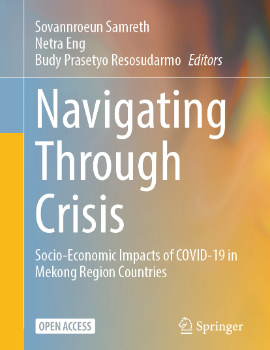
Navigating Crisis: Firm Performance and Strategic Responses in Cambodia
The COVID-19 pandemic significantly impacted Cambodia’s economy, leading to a contraction of -3.1% in 2020, with sharp declines in the service and industry sectors. Cambodian businesses, particularly small and medium enterprises, faced considerable turmoil while already grappling with challenges. This study examined firm performance—including expen...
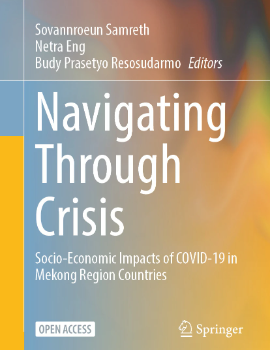
Lessons from the COVID-19 Pandemic in the Mekong Region
The experiences of Cambodia, Lao PDR, Myanmar, and Vietnam offer several lessons for the pandemic’s responses. First, economic diversification and innovation improved resilience to the shocks. Second, timely public health actions lessened the pandemic’s adverse effects. Third, the pandemic revealed social protection gaps, especially for migrant and...
